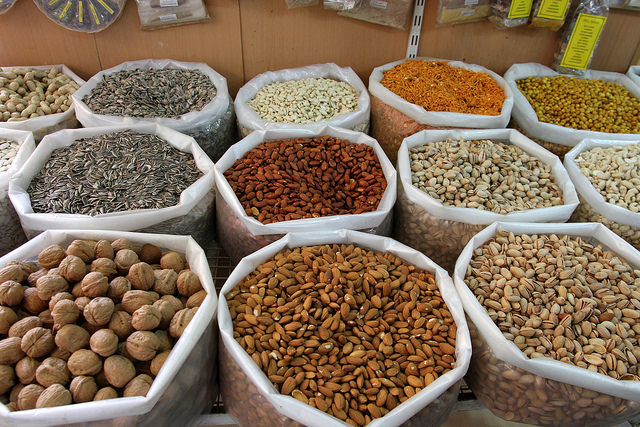What foods should I eat to be healthy and vegan?
Being vegan is a way of life that involves eating entirely plant-based foods, with the aim of supporting animal protection. And cutting out animal products can do your body a world of good.
A vegan diet excludes meat, fish, eggs, dairy products and all animal products. In this article, we detail several essential vegan foods for good health.
Legumes
Legumes are very rich in fiber. This characteristic helps improve intestinal transit. Regular consumption will gradually reduce digestive bloating.
They are also rich in antioxidants, which combat the action of free radicals and stimulate the immune system as a whole. This reduces the risk of several types of inflammation, as well as certain cancers and cardiovascular pathologies.
They include beans, chickpeas, lentils or even beans.
Spirulina
Spirulina is a vegan food supplement classified as a "superfoods" ! Above all, it contains a lot of protein. And this protein is highly assimilable, with a utilization rate of between 50 and 61%. A very interesting figure, especially for vegan athletes.
Spirulina is also an excellent source of vitamin B1. Also known as thiamine, this vitamin is necessary for the digestion of fats and proteins. In this sense, spirulina will boost energy, eye health and brain function.
Finally, it is an excellent source of iron. Iron is a key issue for people who have stopped eating meat and fish, and the iron contained in spirulina is an excellent source of iron. spirulina is highly assimilable.
Tofu
Tofu is excellent for the waistline because it's low in calories. Tofu also contains plenty of magnesium, manganese, essential fatty acids, zinc, potassium, calcium, copper and vitamin A.
Finally, tofu is rich in vegetable proteins. 100 grams of firm tofu contain almost 9 grams of protein. It is particularly recommended for sportsmen and women, for muscle recovery and rebuilding.
And it's easy to cook. All you need to do is lightly grill it in a frying pan and accompany it with steamed vegetables for a good supply of vitamins and proteins.
Seitan
By excluding meat, the vegan diet can be more limited in terms of protein intake, not least because animal proteins are complete and contain all the essential amino acids.
This is why seitan is so interesting. It is very rich in cereal proteins and contains 22 amino acids, including the 8 essential amino acids the body needs to build itself.
On average, seitan contains 25% protein, whereas beef, for example, contains 20%. Vegans and vegetarians alike can therefore rely on seitan for a healthy, balanced and nourishing diet.
Plant milk
Plant milks are generally used to replace animal milks. If you're lactose intolerant or vegan, they can be a great alternative. Before talking about the advantages, let's specify that their constitution is very different from that of cow's milk.
Among their health benefits, plant milks are easier to digest for people who are lactose intolerant, and contain no cholesterol. They are also generally lower in calories than cow's milk, especially whole milk.
As far as lipids are concerned, plant milk, like soy beverage provides less saturated fat. As a reminder, saturated fats are bad for the body, especially if consumed in large quantities.
When it comes to drinking plant milk, choose drinks with no added sugar. This is indicated on the packaging or on the label, and it is highly recommended to take without added sugar, as the latter is poisonous for the body.
Plant milks include soy milkoat milk or almond milk.
Seeds
High in energy and satiating, seeds are excellent sources of :
- Lipids (particularly unsaturated fatty acids, which are good fats)
- Vegetable proteins
- Nutrients (vitamins, minerals, trace elements, etc.)
- Fiber (promotes digestion and optimizes intestinal transit).
There are different types of seeds. The most recommended are chia seedsare among the "superfoods". There are also pumpkin seeds, flax seeds or sesame seeds, rich in nutritional benefits.
They can be added to all your dishes, without exception: soups, pies, cakes, smoothies, vegetables.
Nuts
Nuts include almonds, hazelnuts and peanuts. different types of nuts. Nuts are above all excellent sources of lipids (fats).
85% of nuts' fats are mono- or polyunsaturated, containing omega-3 in particular. These fats have a beneficial effect on bad cholesterol (LDL) levels, and have an anti-inflammatory effect on the arteries, reducing the risk of several diseases, including myocardial infarction and stroke.
These good fats also have a number of other health benefits. They reduce type 2 diabetes, and the risk of gallbladder removal and colon cancer in women.
Nuts are also high in vegetable protein. This is true of almonds, which contain 8 grams of protein per 30 almonds.
For more information on vegan nutrition, visit Merci Végan blog blog shares a wealth of information to help you understand what's at stake in veganism, and all the benefits this lifestyle has to offer for both our health and our ecosystem.


